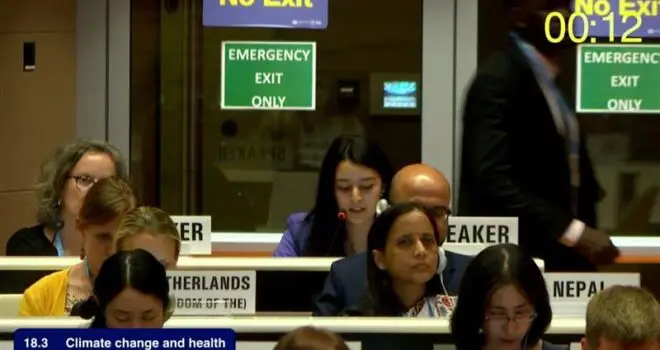This is a statement made at the 74th session of the World Health Assembly on Agenda item 22.1: Social Determinants of Health on behalf of the Union for International Cancer Control (UICC), the World Heart Federation and the NCD Alliance.
Thank you for the opportunity to deliver this statement on behalf of UICC, WHF, and NCDA.
We welcome the report and resolution and applaud Member States for supporting this agenda item. To realise the full potential of the resolution and work on the social determinants of health (SDoH), we urge Member States to:
- Integrate SDoH into national health planning to interrupt cycles of inequity.
- Ensure that policies and programmes are not confined to the health sector and utilise a whole-of-government approach to improve prevention through access to healthy, affordable, and nutritious food and safe, clean spaces for physical activity, protection of populations from health harming products like tobacco, alcohol, ultra-processed foods and fossil fuels, and address the commercial determinants of health and actions of unhealthy commodity producers that undermine health.
- Collect and disaggregate data to help identify key SDoH, with particular focus on groups with specific needs such as older adults and those with living with multiple morbidities.
- In development of pandemic response and preparedness plans, recognise and address the interactions between COVID-19 and NCDs, and take steps to substantially increase the health and resilience of populations.
- Align pandemic and UHC strategies to deliver equitable and affordable access to NCD prevention, screening, diagnosis and treatment with quality-assured technologies, vaccines and medicines, including controlled medicines for palliative care.
To support comprehensive action, we call on WHO to:
- Develop appropriate indicators to measure the impact of social inequalities on NCDs.
- Include the voices of patients and utilise work already underway by CSOs to monitor the coverage, availability, and quality of interventions and their impacts on populations.
- Share lessons learned and best practices to inform and support accelerated action.
- Develop and implement clear policies to protect the WHO and WHO Foundation from perceived or actual conflicts of interests.


